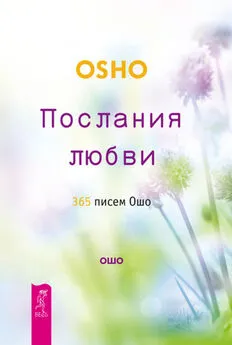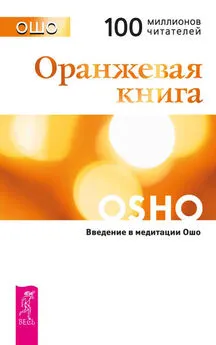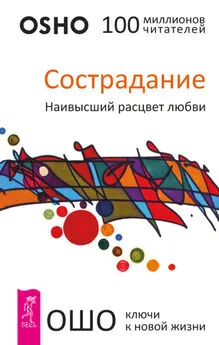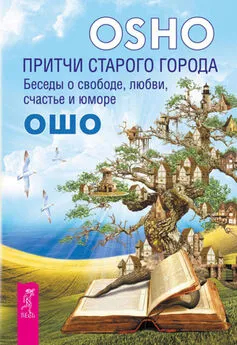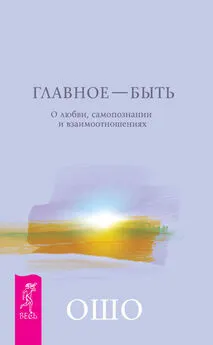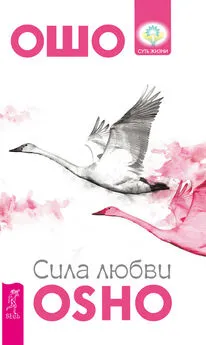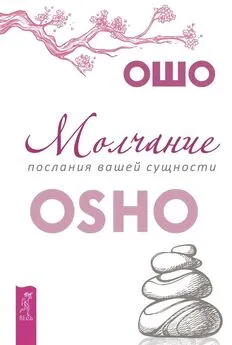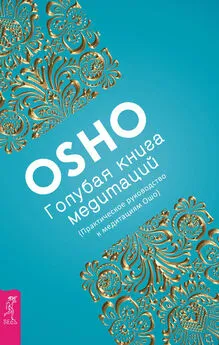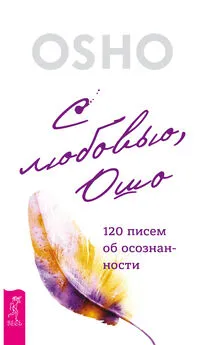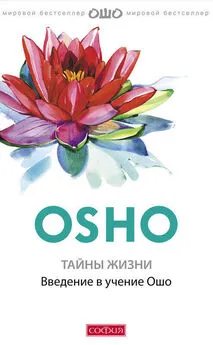Бхагаван Раджниш (Ошо) - Послания любви. 365 писем Ошо
- Название:Послания любви. 365 писем Ошо
- Автор:
- Жанр:
- Издательство:Array Литагент «Весь»
- Год:2012
- Город:СПб
- ISBN:978-5-9573-2446-1
- Рейтинг:
- Избранное:Добавить в избранное
-
Отзывы:
-
Ваша оценка:
Бхагаван Раджниш (Ошо) - Послания любви. 365 писем Ошо краткое содержание
Речь Ошо необыкновенно поэтична. Чтобы читатель прочувствовал ритм и неповторимый стиль великого мастера, в книге, помимо перевода, приведен оригинальный английский текст. Исполненные тепла и любви, где каждая фраза наполнена глубоким смыслом, эти письма будут вашим другом и помощником в познании себя.
«Суть не в том, что вы слушаете, но как вы слушаете – потому что послание повсюду, повсюду, повсюду» (ОШО).
Ранее книга выходила под названием «Чашка чая. 365 писем Ошо».
Послания любви. 365 писем Ошо - читать онлайн бесплатно ознакомительный отрывок
Интервал:
Закладка:
Yes, I am always consistent and always stand by
what I have said.
255. Love.
Mind means consciousness somewhere –
centered,
focused and tense.
Meditation means consciousness nowhere,
and when it is nowhere it is everywhere –
decentralized.
Unfocused and non-tense.
Mind is agony by its very nature,
meditation – ecstasy.
Do not treat consciousness like a cat tied to a string.
This very treatment –
or mistreatment –
creates the mind.
The consciousness must be left
to itself, utterly free
to move and be
according to its nature.
Do not localize it.
Do not be partial.
This is the essence of my discipline of no-discipline.
Preserve the absolute fluidity of your consciousness
and then you will not be,
and when you are not and only consciousness is
then for the first time the doors of the divine
are open to you.
256. Love.
Yes, man learns by experience!
Two old drunkards
were in the habit of coming together twice a week
to the wine-seller to get drunk.
After years of this one of them died.
His old friend came in on the Saturday
and they told him his pal had died –
that the whisky had been taken into blood circulation
and so saturated his blood and his breath
that one night before going to bed
the old man went to blow out the candle
and his breath caught fire and he was burned to death.
The other man promptly called for a Bible
and took an oath that from that time forward
he would never blow out another candle in his life!
Yes, man learns by experience!
257. Love.
Do not imitate anyone,
do not follow anyone,
otherwise you will be just a pseudo existence –
and that is worse than suicide.
Be yourself –
and only then
can you be responsible
and authentic and real.
But ordinarily everyone is just secondhand and borrowed,
and that makes everything ugly.
Mulla Nasruddin went to a mosque and sat down.
His shirt was rather short
and the man behind him pulled it lower,
thinking it looked unseemly.
Nasruddin immediately pulled the shirt of the man
in front of him.
What are you doing? asked the man in front.
Don’t ask me, ask the man behind – he started it,
said Nasruddin.
258. Love.
The real religious experience
cannot be organized, taught or transmitted.
To systematize it is to kill it.
It is so living and moving and dynamic
that to impose a pattern on it is impossible;
and the experience is always so unique and individual
that it cannot be put into any category –
although it happens when the individual is not.
It cannot be followed,
for everyone has to find it for himself,
and that is the beauty of it,
and also its freedom and virginity.
It is not new in the sense of any opposition to the old,
it is new in the sense of timelessness –
that is, eternally fresh and innocent –
as every flower is new
and every sunrise is new
and every love is new.
It is not borrowed from the past,
it is not based on any tradition,
it is not derived from without,
it happens within,
without any causality.
It happens unconditionally.
It is not continuous with the mind,
it is a discontinuous explosion.
There are clouds in the sky
and the sky cannot be seen,
but there is no causal chain.
The clouds have gone
and the sky is clear
but there is no cause-and-effect relationship.
The sky has not even known the clouds!
It has not been affected by them in any way whatsoever.
259. Love.
Life becomes more authentic
in the direct encountering of death.
But we always try to escape the fact of death,
and so life becomes pseudo and phony.
Even death, when authentic, has a beauty of its own
while pseudo-life is just ugly.
Meditate on death
because there is no way to know life
unless you stand face to face with death.
And it is everywhere;
wherever life is death is also.
They are really two aspects of one and the
same phenomenon,
and when one comes to know this, one transcends both.
Only in that transcendence is the total flowering of consciousness
and the ecstasy of being.
260. Love.
Man adds everything to his ego –
while everything goes on without him.
He is nothing,
but he thinks himself everything.
Mulla Nasruddin was walking past a well
when he had the impulse to look into it.
It was night, and as he peered
into the deep water
he saw the moon’s reflection there.
I must save the moon! the Mulla thought,
otherwise she will never wane
and the fasting month of Ramadan
will never come to an end.
He found a rope, threw it in and called down:
Hold tight! Keep bright, help is at hand!
The rope caught in a rock inside the well
and Nasruddin heaved as hard as he could.
Straining back he suddenly felt the rope give way
as it became loose and he was thrown on his back.
As he lay there panting
he saw the moon riding in the sky above.
Glad to be of service, said Nasruddin.
Just as well I came along, wasn’t it?
261. Love.
Are you really aware of what anger is?
Are you really aware of it when it is present?
I ask these questions
because man is never present in the present .
Man lives in the past
and only becomes aware of anything
when it has become a part of his memory.
One becomes aware of anger and sadness
only when they are all over,
and then awareness is just pseudo-awareness;
it is not awareness but remembering,
and remembering leads nowhere
because it is running in a circle.
Then one can fight with anger
but can never understand it,
and fighting with anger is anger –
of course more subtle
and therefore more strong and more poisonous.
So do not think about anger or sadness or happiness
and do not understand remembrance to be awareness
but be aware when anger is present .
Be totally conscious of it,
live it consciously and do not escape from it
and then you will know what it is.
To understand it is to transcend it.
Then you will find a silence descending on you
which passes all understanding.
262. Love.
Never to have seen the truth
is better than to have seen it
and not to have acted on it.
263. Love.
One should never be afraid of rising thoughts or desires
but only of the delay in being aware of them.
264. Love.
The purest ore is produced from the hottest furnace;
and the brook would lose its song if we removed the rocks.
265. Love.
Be empty and you will know.
Be empty and you will be the mirror.
Only total nothingness is capable of knowing all!
I have heard that the nun Chiyono studied for years
and meditated for years on the ultimate questions
of existence
but was unable to find the light.
The thinking was filling her so much
that she could not be a passage for the divine.
She was so filled with herself
that she could not be a host to the divine guest,
and the more she longed for enlightenment
the further off it was.
But one moonlit night she was carrying an old pail filled with water
– and the thing happened!
She was watching the full moon reflected
in her pail of water
when the bamboo strip that held the pail staves broke.
The pail fell all apart,
the water ran out,
the moon’s reflection disappeared –
and with it Chiyono herself disappeared.
She was not – but the enlightenment was there!
She wrote this verse:
This way and that way
I tried to keep the pail together,
hoping the weak bamboo
would never break.
But suddenly the bottom fell out:
no more water
no more moon in the water –
and emptiness in my hand!
266. Love.
One day Lin-chi was asked: What is the essence of meditation?
Lin-chi came right down from his seat
and taking hold of the questioner by the front of his robe,
slapped his face, then let him go.
The questioner, of course, stood there stupefied.
Then Lin-chi laughed and said to him:
Why don’t you bow?
This woke him from his reverie,
and when he was about to make a bow to the master
he had his first taste of meditation!
Please read this again and again and again,
and if you do not have the same taste
then slap your face yourself
then laugh and bow down to yourself –
and then you will certainly have the same taste.
267. Love.
The sun is rising high in the sky.
Its light enters the house through an opening.
The dust is seen moving in the ray of light
but the empty space of the room is unmoving.
Now close your eyes and be silent.
Then ask yourself: Who am I –
the moving dust or the unmoving space of the room?
Do not answer intellectually,
because intellectual answers are not answers,
but wait and realize .
Hsu Yun says: The mind is nothing but foreign dust.
Who are you – the mind? – the foreign dust? or —?
268. Love.
The mind exists to raise questions,
but only questions.
It never answers,
and it can never answer.
That is beyond it,
it is not meant for that,
that is not its function.
But it tries to answer,
and the result is the mess called philosophy!
Meditation never questions,
but it answers.
It is the answer,
because it is life,
because it is existence.
Question – and there is no answer.
Do not question – and you are the answer.
Why is it so?
It is so because
the questioning consciousness, mind , is disturbed,
and the non-questioning consciousness, no-mind ,
is silent, quiet and at rest in its suchness.
Philosophy comes out of questioning,
religion, out of the non-questioning consciousness.
Logic is the method of philosophy
and meditation the method of religion.
269. Love.
If the present is just continuous with the past
then it is not present at all.
To be present,
the present must be discontinuous with the past,
only then is it young, fresh and new –
and then it is not a part of time
but is eternity itself.
The now is eternal
but we live in the past or in the future –
which is nothing but a faint echo of the past itself.
Our whole activity springs from the past
or the future –
which is the same thing.
Then the present is false and dead:
and if the present is false then we cannot be real,
and if the present is dead then we cannot be alive.
That is why I insist on living in the present
and dying each moment to the past.
Live atomically – moment to moment –
and then your life will have a totally different quality:
the quality of the divine.
270. Love.
To me meditation means –
be playful and transcend all seriousness.
See: life is not serious.
Look around: existence is not serious.
Only disease is serious, and of course death,
and the exploiters of death – the priests!
Читать дальшеИнтервал:
Закладка:
